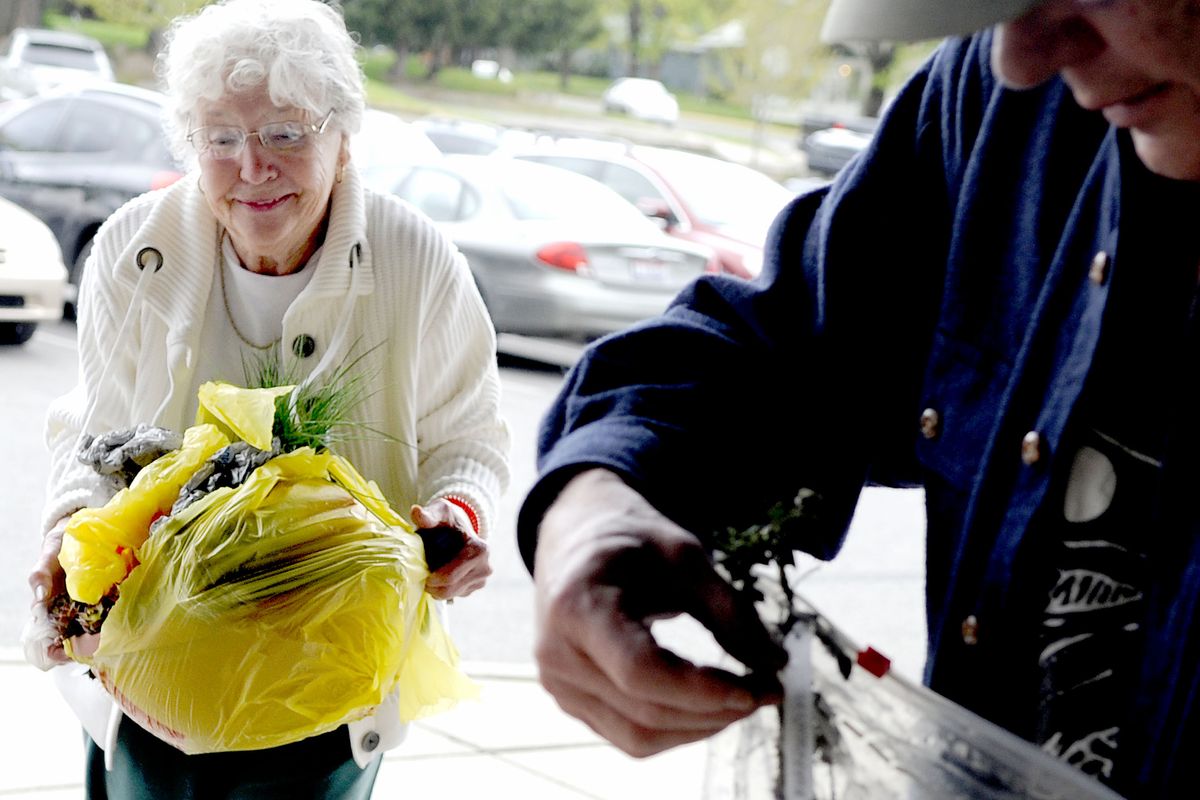an idea takes root
Seed-sharing programs help library patrons get growing

Visitors to three Inland Northwest libraries now can check out seeds for their home gardens along with a book to read among the flowers.
Free seed “borrowing” programs sprouted up this spring at Hillyard, Coeur d’Alene and Rathdrum libraries.
Similar seed exchanges also are found at some libraries nationwide, said Sally Chilson, Spokane Public Library learning and literacy coordinator. Libraries are a natural fit for such community-based programs, she said, with space for classes and interaction, and multiple gardening books.
“We tell people to take the seeds home, grow them, enjoy them, compost what’s left, or bring seeds back if you can,” she said. An heirloom seed-saving class is planned later this summer.
At Hillyard, library cardholders can take up to six packets of vegetable seeds and six envelopes of flower seeds. Members can harvest the seeds later from the heirloom plants they grow to return those seeds in provided envelopes to any Spokane Public Library branch for other people to utilize, although the seed-saving isn’t required, Chilson said.
Coeur d’Alene Public Library’s pilot program that runs through May offers any visitor – library members or not – free seed packets. It currently doesn’t ask for harvested seeds but might start a seed exchange later.
“Right now, we’re using donated commercial packets, mainly vegetables,” said volunteer Doug Fagerness, who is a Coeur d’Alene library board member. “When people get the seeds, they know what they’re getting.”
Each Tuesday, Fagerness sets up at a library table to promote the seed program and give away his own seedlings. He said Coeur d’Alene organizers decided to ease toward any exchange of harvested seeds because of concerns about possible cross-pollination. Without knowledge, a novice grower might get “Frankensquash,” he added.
“We’re still figuring out how to do an exchange,” Fagerness said, as the program increases its heirloom stocks and more people gain experience. “Seed saving is really complex.”
However, he said an exchange of information is already happening among gardeners at the library. People have brought him plant starts for heirloom roses and trees to give to others at the table.
Seasoned gardeners also are embracing Rathdrum Library’s “Going to Seed” program that started in March, said Diane Park, seed coordinator and circulation specialist. The library will encourage heirloom seed-saving, she said.
“We’ve had such a tremendous response from the public; half of them say they’ve saved seeds forever,” Park said. “That is our purpose, to start getting seeds from the public so the seeds are from plants acclimated to this area and climate. We specify that the seeds be from plants that are heirloom or organic.”
Park said the library held one seed program educational workshop in March, with more classes to follow. It also has a “Going to Seed” Facebook page, and one library computer solely devoted to seed-saving webinars. The seed program will be on permanent display.
“You don’t have to have a library card; it’s just a community service,” she said. “We hand them a registration card. They can bring in seeds in any container, and we just ask that we have some information about the seeds.”
The Hillyard Library seed program also will run year-round, and the packets are filed in a repurposed card catalog storage unit, Chilson said. “If you want to grow an herb garden in the kitchen, you can do that. Some people start their plants in their homes early.”
Spokane Public Library’s other branches eventually might host seed libraries depending on demand, she said. Chilson said Hillyard’s seed library started after two volunteers, Kate Burke and Ellie Holm, suggested the concept. Holm collected seed donations from commercial seed companies and local gardeners.
Holm, a longtime Spokane Valley gardener and seed saver, regularly attends a large seed exposition in California where she first heard about community seed libraries. She researched how to start one.
“I think more and more people are interested in growing their own food,” Holm said. “You’d be amazed how much money you can save by saving seeds.”
“By growing heirlooms, you can save that seed and replant it the next year. Hybrids are a cross of two or maybe three seeds to get a plant, and you can’t save that seed because it won’t be the same thing that you planted.”
Holm also bought some of the seed packets donated to the library, using proceeds from selling seedlings she grew. She plans to help other library branches start seed programs.
“I bet there were close to 4,500 packets by the time the Hillyard seed library opened,” she said.